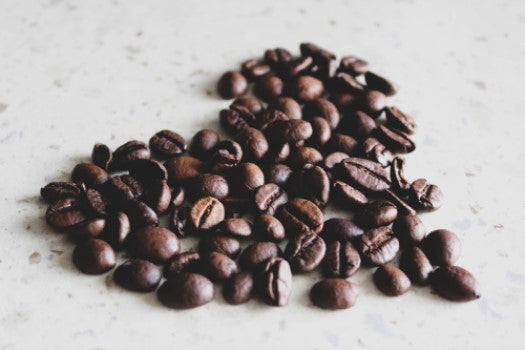
April 21, 2020 3 min read

There's no doubt about it, shade-grown coffee is better; better for the farmers, better for your palate and better for the birds & wildlife! But what does it mean exactly?
There are two main kinds of coffee bushes grown globally today, 'Arabica' (80%) & 'Robusta'.(20%). Normally all kinds of coffee would naturally grow in the shade, but Robusta has been trained to tolerate full sunlight. Other differences between the two species are in height (Arabica tops out at only 4.5 m, while Robusta will grow to 6 meters) and chemical content. Arabica's superior taste comes from having less caffeine, and more natural sugar. Robusta is more bitter due to the higher caffeine but this makes it less appealing to insects and so easier to farm intensely (crowded, mono planting conditions) but the harvested beans only sell for half of what Arabica's beans go for on the wholesale market.
So, to sum it up, Arabica coffee plants grow better in the shade and produce a better-tasting coffee. To create shade for the coffee bushes farmers plant trees. This creates an ideal micro-climate not only for the coffee to grow but also for birds and other wildlife. The birds return the favor by feasting on the caterpillars that would normally be a danger to the coffee bushes. There are many more positive interactions that come from this type of planting, such as less evaporation of moisture from the soil.

Our organic Colombian coffee comes from specific cooperatives made up of smallholder farmers to ensure a fair living wage and to support fair trade practices. These farm cooperatives are not part of a strictly shade-grown program, but most of the farmers do plant their coffee trees under shade cover to some extent because it produces a better tasting coffee (better prices for them) and makes their farms more productive. Shade-grown coffee plants last three times longer than sun-grown so don't need to be replaced as often and this is better for small scale farmers. The shade trees are usually avocado & plantain and produce food for their families. Unfortunately, at this point in time, there is not an officially recognized certification for ‘shade-grown’. It is simply a description with no regulation.
The certifications that would loosely relate to shade-grown designations presently are the ‘Bird Friendly’ and the ‘Rainforest Alliance’.
‘Bird Friendly’ certification (by Smithsonian Migratory Bird Center) means the coffee is organic and meets strict requirements for both mature canopy cover and the type of forest in which the coffee is grown. This coffee is guaranteed to support bird habitat.
Rainforest Alliance certification standards for shade cover are less stringent than Bird Friendly, but more than 70 percent of Rainforest Alliance certified farms maintain shade cover, and the standard promotes preserving forest in reserves and along waterways. On farms where forest canopy is not the native ecosystem type, conservation area set-asides of 30 percent or greater are required in the standard.
The problem is small cooperative farms often lack the means to obtain certifications as it can be an expensive process. These farms rely on the superior taste of their coffee to sell their beans. A taste that can only be produced in the shade.

❤ Try our USDA certified organic Colombian Coffee Beans ❤
Recipes:
Thanks for reading this Be Still Farms Blog article. To sign up for more news/articles and/or recipes, click here. For more about us, click here. To shop our certified organic products, click here.
Please comment and share and we look forward to serving you in the future!
Comments will be approved before showing up.

January 27, 2025 3 min read
Flaxseed, the tiny yet powerful superfood, is packed with nutrients that can support weight loss. From curbing hunger to stabilizing blood sugar, this guide dives into the science of how flaxseed can help you shed those extra pounds.

December 11, 2024 3 min read
Discover three quick and easy soup recipes featuring organic small red beans. From a classic vegetable soup to a creamy potato blend, these wholesome recipes are perfect for chilly days and busy weeknights. Packed with flavor and nutrition, these soups will warm your heart and soul this winter!

December 06, 2024 3 min read
This vibrant and nutritious Green Lentil Salad combines tender lentils with grilled chicken, fresh vegetables, and a zesty lemon dressing. Packed with protein, fiber, and essential vitamins, it’s the perfect healthy meal for any time of day.
© 2025 Be Still Farms- Real, Fine Organics.
Privacy | Terms | Refund Policy | Organic Certification
